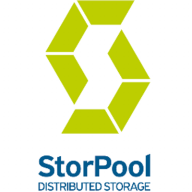


StorPool and Nutanix Unified Storage (NUS) are data storage solutions in competition, each with strengths. StorPool often leads with superior pricing and quick ROI, while NUS excels in feature richness and adaptability, especially in complex deployment environments.
Features: StorPool offers high-performance block storage, enabling rapid scalability and seamless integration. Its real-time analytics and zero downtime upgrades simplify operations. Nutanix Unified Storage boasts integrated data protection, a Global File System, and hyper-converged infrastructure, supporting flexible deployments with robust security and data analytics tools such as Data Lens and File Analytics.
Room for Improvement: StorPool could enhance user interface design and documentation resources, making it more accessible for users unfamiliar with CLI-based systems. Additional features for advanced analytics integration and disaster recovery would benefit some use cases. Nutanix Unified Storage might improve its setup complexity, optimizing for faster initial deployment times. Streamlining cost structure could help attract mid-sized businesses, and better performance monitoring tools could enhance usability.
Ease of Deployment and Customer Service: StorPool is known for straightforward deployment, requiring minimal training, backed by responsive support. Its system design focuses on user-friendly management, allowing for swift integration into existing infrastructures. Nutanix’s comprehensive setup requires more initial configuration but is balanced by in-depth customer support and varied training resources to alleviate complexity challenges.
Pricing and ROI: StorPool offers competitive pricing with a focus on low startup costs and rapid ROI, appealing to enterprises prioritizing budget management. NUS, although involving a higher initial expense, promises extensive long-term value through its comprehensive features, ideal for businesses seeking extensive functionalities despite the premium entry cost.
It does not require much management once you set up correctly, so it saves time, allowing an admin to focus on other work.
For me, the biggest return on investment when using this solution is that we do not have to have much support staff to run it.
The scalability challenge with previous systems is lessened with Nutanix since we can expand by adding new hardware without needing migrations.
We are saving approximately 20% to 25% compared with the competition.
I would rate them an eight out of ten.
The support is done through email and is not that great, making it a very problematic area I've been dealing with for over four years.
Their technical support has been perfect lately, so I would give it a 10.
They come on the call, start troubleshooting immediately, and resolve issues effectively.
They are very knowledgeable, and if they can't solve the problem, they find the answer within a day or so.
I would give the customer service and technical support a ten out of ten.
Pure Storage FlashBlade is scalable.
There are between 5 and 10,000 people using it in our organization.
This means you don't have to buy everything upfront; you can buy what you need and add more as you grow, which is advantageous.
These three components utilize scalability tools, enabling storage addition to nodes and supporting independent, linear performance growth.
I find the scalability of Nutanix Unified Storage (NUS) to be excellent, and I would rate it a ten based on my clients' requirements.
In case there is any issue with any blade, the data is moved to another.
We have not experienced these issues with Nutanix, which I attribute to the all-flash technology, the quality of their platform, and the responsiveness of the hyper-converged infrastructure.
Nutanix Unified Storage (NUS) is very stable.
It automatically triggers tasks, causing performance issues.
Technical support definitely needs significant improvement.
Its configuration should be easier.
One way Pure Storage FlashBlade can be improved is by having more compatibility between the FlashArray and FlashBlade.
The main concern is pricing, which could deter some customers; addressing this would enhance its appeal.
The system should move towards AI-driven optimization and enhance S3 object storage capabilities.
System downtime can disturb the entire ecosystem and impact all applications.
The pricing of Pure Storage FlashBlade is expensive compared to other products I used from other companies in the past, but one benefit is that they have built-in ransomware protection.
Regarding pricing, it is okay; we needed exactly this in size, and the price was a lot lower than competitors, making it good for us.
Compared to buying three or four vendor solutions, it is much cheaper.
The cost has doubled for the same amount of data, which was a challenge when presenting use case justifications for the increased cost.
Nutanix Unified Storage (NUS) has definitely helped reduce our total cost of ownership.
We can plug in many blades, and we can have data up to one terabyte.
The best features of Pure Storage FlashBlade include better throughput and better performance.
Pure Storage FlashBlade's scalability is one of the most valuable features, and importantly, it always works, allowing for seamless upgrades.
Nutanix Unified Storage (NUS) is appreciated for its fault tolerance and redundancy at the cluster level, which ensures reliable storage of files, folders, and other information accessible on the client side.
The cybersecurity features of Nutanix Unified Storage (NUS) when dealing with unstructured data, such as ransomware threats, provide the ability to detect and back up block-based storage, allowing me to restore repositories or sets of block storage with one button click, which is automatic.
My experience with using Nutanix Unified Storage (NUS) for data-intensive workloads is that we have many SQL Servers and they perform much better than they did when we used hybrid converged previously.
| Product | Market Share (%) |
|---|---|
| Nutanix Unified Storage (NUS) | 4.1% |
| Pure Storage FlashBlade | 3.3% |
| StorPool | 2.9% |
| Other | 89.7% |


| Company Size | Count |
|---|---|
| Small Business | 11 |
| Midsize Enterprise | 11 |
| Large Enterprise | 21 |
| Company Size | Count |
|---|---|
| Small Business | 27 |
| Midsize Enterprise | 30 |
| Large Enterprise | 63 |
| Company Size | Count |
|---|---|
| Small Business | 6 |
| Large Enterprise | 1 |
FlashBlade is the industry’s most advanced scale-out storage for unstructured data, powered by a modern, massively parallel architecture to consolidate complex data silos (like backup appliances and data lakes) and accelerate tomorrow’s discoveries and insights.
Nutanix Unified Storage offers seamless scalability and high availability with a user-friendly interface, supporting multi-protocol operations while integrating effortlessly with cloud platforms. It enhances performance and security with features like ransomware protection and advanced data management.
Nutanix Unified Storage streamlines storage management by consolidating infrastructure and optimizing virtualization. It reduces operational complexity and enhances performance across diverse workloads. Despite feedback on integration challenges and suggestions for improving pricing, API capabilities, and security, it remains a key choice for dependable storage solutions. Calls for streamlined implementation and enhanced AI capabilities reflect its potential to better support evolving organizational strategies, driving cost efficiency and data accessibility.
What are the key features of Nutanix Unified Storage?In industries, Nutanix Unified Storage is deployed to centralize storage needs, improve database efficiency, and enhance file sharing and security. Organizations use it to consolidate infrastructure, support virtualization, optimize costs, and facilitate virtual machine hosting. It's instrumental in scalable object storage, ransomware protection, integrating legacy systems, and catering to critical applications.
StorPool is intelligent storage software that runs on standard servers and builds scalable, high-performance storage system out of these servers (software-defined storage). It focuses on the block-level storage and excels at it. It is incredibly flexible and can be deployed in both converged setups (on compute nodes, alongside VMs and applications) or on separate storage nodes.
StorPool has advanced fully-distributed architecture and is arguably the fastest and most efficient block-storage software on the market today. It is the best storage system when building a cloud.
We monitor all Software Defined Storage (SDS) reviews to prevent fraudulent reviews and keep review quality high. We do not post reviews by company employees or direct competitors. We validate each review for authenticity via cross-reference with LinkedIn, and personal follow-up with the reviewer when necessary.